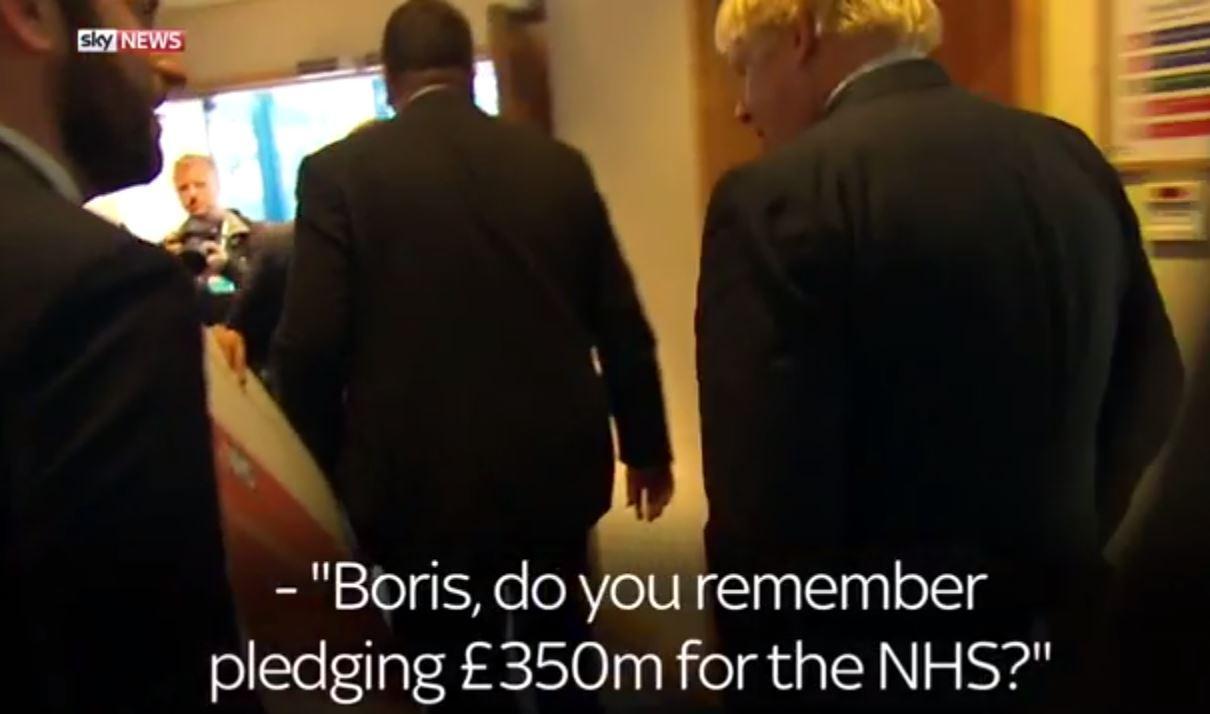The Tories have a lot of stupid policies that penalise poor people, but showing your passport to access the NHS is the worst
20 per cent of residents in England and Wales do not own a British passport, and there's no free-of-charge ID card alternative. Meanwhile, it's only those who own their homes who you can be sure will be on a utility bill. The new plan suggests you'll need a bill and a passport as minimum


I didn’t really believe in “health tourism” until an appointment with my GP descended into a longer chat about Jeremy Hunt, the future of the NHS and why my near-retirement physician was nearing the end of his tether. At his inner-London practice, my GP had spent many hours of his time and thousands of pounds of his budget treating the relatives of immigrants who flew in to receive NHS treatment for chronic conditions – diabetes, asthma, arthritis, and suchlike – that was totally unavailable in their home countries.
It raises a moral question: where does the responsibility of the NHS to treat free of charge begin and end? Should we ever knowingly leave, say, a diabetic with dangerously-raised blood sugar levels untreated in the UK even though we’re aware they don’t qualify for NHS care free at the point of delivery?
So, there is a problem. In cost terms, health tourism only accounts for a tiny proportion of the financial crises facing the NHS – but it does exist. So how do we tackle it?
Here’s where we get to the interesting part. Putting aside the question of whether or not it should be a political priority right now, the proposals that have been put forward this week to stop health tourism share one thing in common with all the other doomed policies that have embarrassed the Government recently: they are designed in Whitehall by middle class people with middle class lifestyles in mind.
Here’s the big idea: we’ll ask everyone to show a passport and a utility bill when they arrive at doctor’s surgery, hospital or NHS clinic. If we know you’re a Brit, then come on in.
But hang on. 20 per cent of residents in England and Wales do not own a British passport. Many (perhaps most) of those will not be able to afford one; it costs a minimum of £72.50 to obtain a passport and, because we do not require that our citizens carry an ID card, there is no free-of-charge alternative. Others hold a passport for another nation, but are nevertheless eligible for NHS care because they are a resident. There’s not much that you can tell about a person by the passport after all.
And wait. Not everybody has a utility bill, either. If you don’t own your own home, many landlords require that utilities are held in their own name and are paid as part of a combined rent. Even where that’s not the case, many of the poorest households pay by meter, not by monthly direct debit. You can’t even get a direct debit if you don’t have a sufficient income to set up what was once known as a “chequing account” with the bank.
The result: since we know that poor health is directly correlated to living in poverty, we’re proposing to make it deliberately harder for those who are likely most in need of NHS services, and who are legitimately entitled to use them, to access our free healthcare system. It’s the law of unintended consequences in one neat case study.
Are you spotting a theme here? Those who designed this policy assume everyone has a passport or form of ID and at least one utility bill. They most likely have never met a person in their adult life who does not possess both. Millions, however, don’t.
When Universal Credit, a huge reform of the welfare system, was designed by the Conservative Party in the run up to the 2010 general election, it was based around a simple premise: claiming unemployment and other benefits should be more like receiving a paycheque from work; whatever you earn each month, and however you earn it, it comes directly into your bank account and it’s your responsibility to manage it.
So out goes housing benefit paid directly to the landlord to keep the roof over your head; out goes separate payments based on your caring responsibilities, any disabilities or your job status. Everyone on benefits gets a single monthly payment and how they manage it is up to them. Just like it is for every employee on a monthly salary. Simple.
But hang on. Many people in low-paid work are paid weekly or fortnightly, not monthly. Their outgoings are often short-term too. When in work, they will never have a month’s money in one go. Universal credit doesn’t ask unemployed people to behave like they’re in work again, it asks them to behave like they’re in a completely different kind of work altogether – a white-collar salaried role paid monthly in arrears and with monthly outgoings (rent or mortgage, utilities, phone and broadband contracts, credit card repayments) to match.
Benefit sanctions were designed in the same way: they are supposed to offer a short-term punishment – as they would for those with savings and a buffer, those whose financial responsibilities are counted in four-and-a-half week chunks. For people who live week to week, a seven-day sanction is the difference between coping at the Co-op and queuing at the food bank.
Universal Credit hit the buffers as soon as it was launched. The trial schemes plough on steadily, making little progress, but the original, big vision of a simple, data-driven benefits payment system that helps people “take responsibility” for their lives will never be realised. The people who thought it up demonstrated an inability to comprehend the hardships and complexities of a life lived in deep poverty, and today’s NHS policy is similarly flawed.
The markers of adult independence that policy-makers take for granted amount to a life of luxury for some of those on whom their policies impinge. We are supposed to have processes to stop this happening – equalities legislation, review processes to weed out unintended consequences – but it keeps on happening. Like every elite profession (and that, of course, includes mine), Whitehall can’t get better at its job until it starts employing someone who understands what life is really like, and how it is lived, for the poorest people in Britain.



Join our commenting forum
Join thought-provoking conversations, follow other Independent readers and see their replies